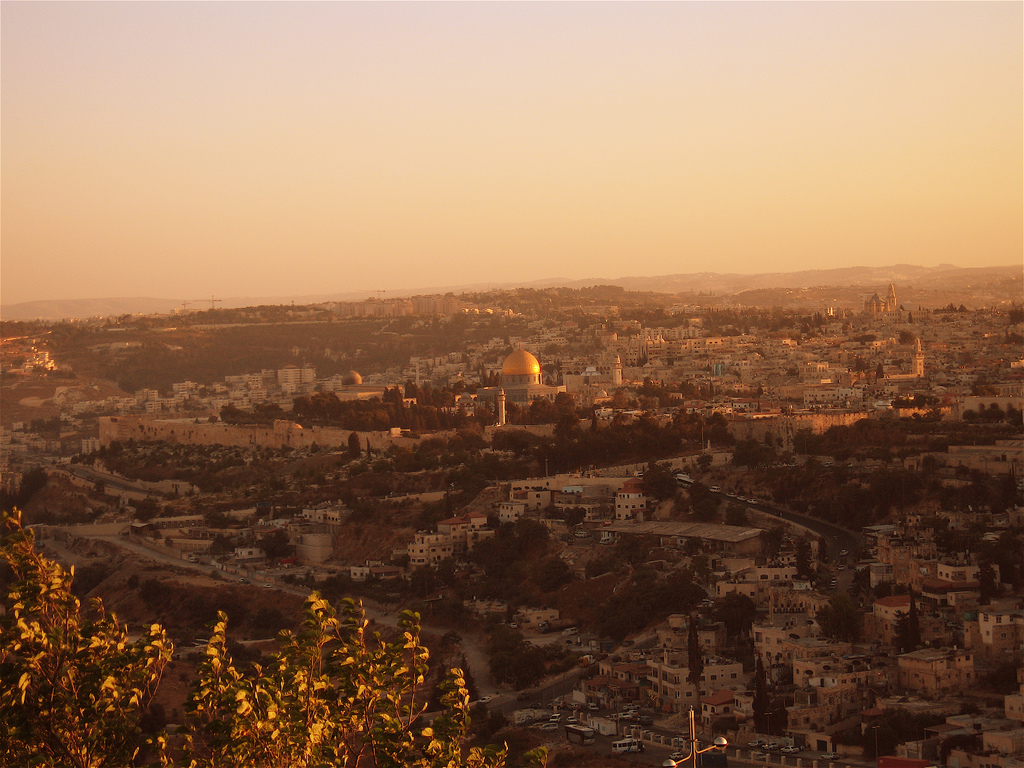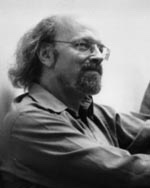Jerusalem
With the outset of autumn as determined by the Jewish liturgical calendar, a daily prayer is recited beseeching God to bless the Holy Land with rain: “… Turn to us, God, who are surrounded by troubles like water
 With the outset of autumn as determined by the Jewish liturgical calendar, a daily prayer is recited beseeching God to bless the Holy Land with rain: “… Turn to us, God, who are surrounded by troubles like water. / For the Jewish people’s sake, do not hold back water. / You are Adonai, our God / Who causes the wind to blow and the rain to fall.” The prayers were answered this year in early December as the first rains began to fall, eliciting joyous prayers of thanksgiving.
With the outset of autumn as determined by the Jewish liturgical calendar, a daily prayer is recited beseeching God to bless the Holy Land with rain: “… Turn to us, God, who are surrounded by troubles like water. / For the Jewish people’s sake, do not hold back water. / You are Adonai, our God / Who causes the wind to blow and the rain to fall.” The prayers were answered this year in early December as the first rains began to fall, eliciting joyous prayers of thanksgiving.
But on the following day, hopes that the “troubles that surround” the land will recede, leaving in their wake the blessings of peace, were severely damped by President Trump’s grandiloquent announcement that the United States recognizes Jerusalem as the political capital of the State of Israel. That Jerusalem is the spiritual center of Judaism and the Jewish people few would deny; that it is the political capital of the State of Israel has been questioned since its founding in 1948. Israel’s claim to political sovereignty over Jerusalem is contested because it is also a spiritual home for Christians and Muslims worldwide, not to mention that Christian and Muslim Arabs have been denizens of the Holy Land for generations and more.
The seemingly intractable political dispute is compounded by the transmogrification of supersessionist religious claims to supersessionist political claims. The imbrication of religious and political supersessionism has cast the Israeli-Palestinian conflict into an uncompromising zero-sum game of either them or us. The mobilization of Realpolitik to secure religious claims to Jerusalem could not but debase the sacrality of the city; indeed, it has desecrated this city holy to Jews, Muslims, and Christians alike with idolatrous overtones of religious chauvinism.
To soften what is widely perceived to be President Trump’s fatal blow to the prospects of a peaceful resolution to the Israeli-Palestinian conflict, some political pundits speculate that his endorsement of Israel’s political claim to Jerusalem is but a smokescreen to allow Israelis and Palestinians to enter clandestine negotiations without the interference of public opinion. But even if it were true that there is an overarching strategy behind Trump’s declaration, it is exceedingly improbable that at this juncture political negotiations would yield a semblance of rapprochement, and not only because the U.S. has irreparably lost its credibility as a neutral mediator. The ultimate impediment to a political solution to the conflict is the abysmal lack of mutual trust.
It is only by laying a firm foundation of mutual trust—trust that the other is not out to “get one,” to outmaneuver one on the playing field of politics, not to speak of the battlefield—that a mutual political accommodation can be achieved. Such trust cannot be attained by negotiations, or even polite debate and convivial conversation. It requires the jettisoning of adversarial attitudes and posturing, and marshaling a determined will to honor the existential reality of the other, to listen attentively and empathetically to the spiritual and emotional voice of the other, the voice that is often muffled by words. The existential bonds forged by mutual trust transcend questions of who is right or whom God favors. These bonds of trust have the heuristic effect of highlighting the horizon of a political solution securing the dignity of the peoples and religious communities who are destined to share the Holy Land.
Resource
- “Heads of Local Churches send letter to President Donald Trump regarding status of Jerusalem.” Latin Patriarchate of Jerusalem. December 6, 2017.
Photo Credit: David Poe/Flickr (cc)
 Author, Paul Mendes-Flohr, is Dorothy Grant Maclear Professor of Modern Jewish History and Thought at the University of Chicago Divinity School. He is also Associate Faculty in the Department of History at the University of Chicago, and Professor Emeritus of Jewish Thought at the Hebrew University of Jerusalem. Author, Paul Mendes-Flohr, is Dorothy Grant Maclear Professor of Modern Jewish History and Thought at the University of Chicago Divinity School. He is also Associate Faculty in the Department of History at the University of Chicago, and Professor Emeritus of Jewish Thought at the Hebrew University of Jerusalem. |
Sightings is edited by Brett Colasacco (AB’07, MDiv’10), a PhD candidate in Religion, Literature, and Visual Culture at the University of Chicago Divinity School. Sign up here to receive Sightings via email. You can also follow us on Facebook and Twitter.

